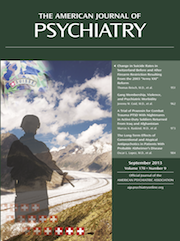New Ethical Issues for Genetic Counseling in Common Mental Disorders
Abstract
Objective
Recent genetic findings of high-impact genetic variants in bipolar disorder, schizophrenia, and autism spectrum disorder (ASD) must lead to profound changes in genetic and family counseling. The authors present risk calculations, discuss the ethical implications of these findings, and outline the changes now required in the risk counseling process.
Method
The authors use data from recent mega-analyses and reviews of common and rare risk variants in bipolar disorder, schizophrenia, and ASD to calculate risks of illness based on genetic marker tests. They then consider new ethical issues in mental disorders presented by these risks, including within-family conflicts over genetic testing; effects of genetic discoveries on stigma, abortion, preimplantation procedures, and population screening for susceptibility; and genetic tests as a factor in marital choice.
Results
New structural mutations (de novo copy number variants [CNVs], which are chromosomal microdeletions and microduplications) are present in 4%−7% of patients with bipolar disorder, schizophrenia, or ASD and can occur almost anywhere in the genome. For a person with a de novo CNV, the absolute risk of bipolar disorder, schizophrenia, or ASD is 14%, much higher than the population risk. Rare CNVs have also been identified that are generally not new mutations but constitute very high-effect risk factors, ranging up to 82%.
Conclusions
A substantial minority of patients with bipolar disorder, schizophrenia, and ASD have high-impact detectable genetic events. This greatly changes psychiatric genetic counseling for these patients and families. A psychotherapeutic approach may be needed as a routine part of risk counseling, particularly for resolution of ethical issues and for within-family stigma and conflicts over genetic test results.



